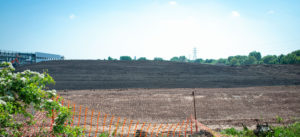Concerns about a group chemicals called PFAS that leave a lasting legacy are continuing around the world. You find perfluoroalkyl and polyfluoroalkyl substances (PFAS) in a number of everyday items. These include water repellants, food packaging, fire retardants and non-stick cookware.
While originally considered useful, there is growing evidence that thet pose a risk to health. You can often find them on brownfield sites and in groundwater. Some are banned or restricted, but many are still in use, including cosmetics.
Forever chemicals
PFAS are a collection of more than 4,700 chemicals and do not break down. As a result, they are known as ‘forever chemicals’. As the name suggests, the compounds they are composed of are highly resistant to treatment.
They are present in a variety of products, including:
- Paints
- Adhesives
- Baking paper and cases
- Non-stick cookware
- Cleaning products
- Cosmetics
- Fire-fighting foam
- Industrial processing materials
The more mobile compounds can be particularly problematic in groundwater systems.
PFAS in groundwater were originally attributed to industrial sites where the chemicals were manufactured. More recently, they have been detected in areas used by firefighters for training or where they are released to control fires. They are used in film-forming foams for controlling petroleum blazes.
In the UK, water industry data has recorded an increase in detection of PFAS in England’s rivers.
PFAS and soil
As well as groundwater, PFAS contaminates soil, particularly on brownfield sites where they were used in manufacturing. Around the world, discoveries of PFAS in soils are increasingly being made.
Because by nature these contaminants are extremely difficult to break down remediation solutions are extremely limited and have traditionally centred on excavation and off-site disposal. Such measures result in further environmental concerns due to the amount of lorry journeys needed to remove and replace contaminated soil. The cost of carrying out disposal can also be prohibitive.
A number of landfill operators are now restricting acceptance of waste containing PFAS and others may follow. This could make reusing sites that contain PFAS difficult.
ATG Solution
At ATG Group our LockedIn® soil stabilisation technology can help. We have been working closely with an international minerals technology company and have a bespoke solution which is proven to be extremely effective.
With this technology, the contaminants are ‘locked in’ with a permanent reduction in leachability of soils/sediments, which prevents them from being a pollution risk. Similarly, PFAS in groundwater can be treated down to the very stringent acceptable discharge concentrations.
If you would like to know more about how LockedIn® stabilises soil contaminated by PFAS, contact us today.
Duncan Sanders, Business Development Director
07841 956032








